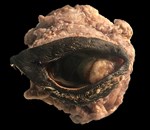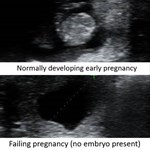Search - All Results
11 - 20 of 561 results
-
Improving antimicrobial stewardship: RVC research reveals extent of systemic antimicrobial usage in UK equine practice
To mark World Antimicrobial Awareness Week, the Royal Veterinary College (RVC) has released new research using real-world antimicrobial prescription data to investigate the use of systemic antimicrobials in UK equine practice. The research, which is …To mark World Antimicrobial Awareness Week, the Royal Veterinary College (RVC) has released new …
-
Tumour Specific Electroporation at RVC Equine
TSE is dynamic electroporation technology used treating equine tumours that are not easily removed with surgery and also treating equid sarcoids -
Mobile Equine Gastroscopy Service
RVC's equine practice vets will conduct mobile equine gastroscopy on your yard or stable to check for gastric ulcers in your horse -
Use of Systemic Antimicrobials in UK Equine Practice (Complete)
The project aims to investigate the use of systemic antimicrobials in UK equine practice using anonymised veterinary electronic patient record data. -
Equine Laminitis Summary of Published RVC Research
Summary of RVC Endocrinopathic equine laminitis research -
RVC graduate announced as finalist for the 2021 BETA Equine Thesis of the Year Award
Recent BVetMed graduate, Sophie Avery from the Royal Veterinary College (RVC) has been shortlisted as one of four finalists for the BETA Equine Thesis of the Year Award. -
New study heralds breakthrough for treatment of common equine cancer
A new study, led by researchers at the Royal Veterinary College (RVC), King’ s College London (KCL), the University of Edinburgh and University College London (UCL), has made a significant breakthrough in scientists’ understanding of squamous cell … -
The RVC’s Equine Locomotor Research Course expands to the USA
Grad Dip Equine Locomotor Research offers professional farriers the chance to gain the skills to produce original research which could enhance equine welfare -
Equine Pituitary Pars Intermedia Dysfunction PPID Research
RVC Equine research project to improving diagnostic accuracy and treatment options for equine pituitary pars intermedia dysfunction (PPID) -
Pioneering RVC research identifies a key reason for equine pregnancy loss
Research from the Royal Veterinary College (RVC) has demonstrated that a chromosomal defect is the reason why a significant proportion of horse pregnancies fail within the first two months of development. This will pave the way for new diagnostic …






